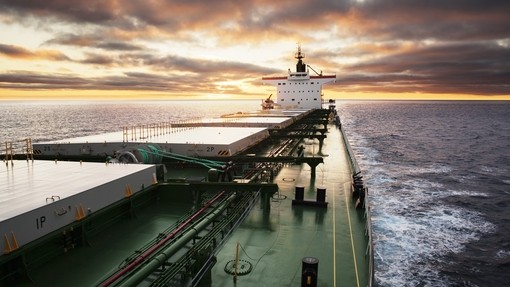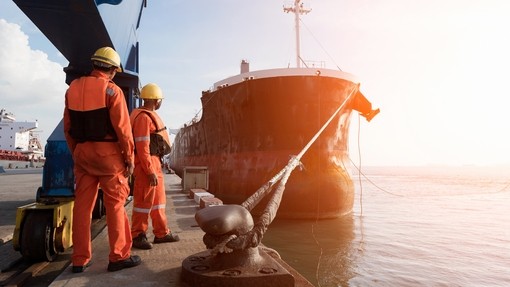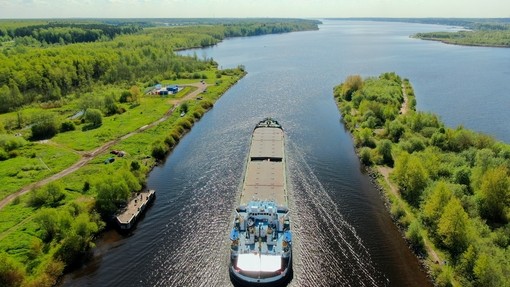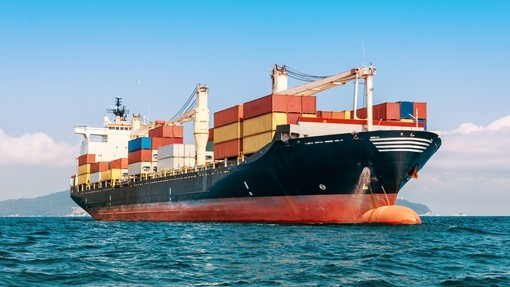Ukraine 18 months on: Implications for the shipping market
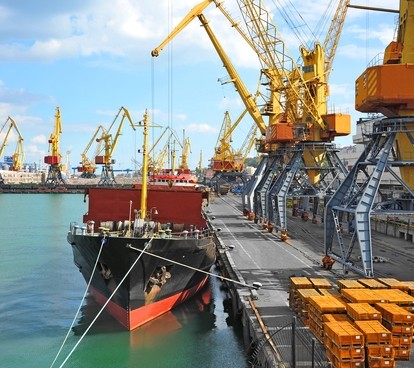
Ukraine 18 months on: Implications for the shipping market
We are now past the 18-month mark since the escalation of the Russia - Ukraine crisis in late February 2022 and there appears to be no immediate end to the conflict in sight, with increasingly advanced military equipment being deployed. This article follows the one featured in the June 2022 edition of Shipping Finance, published shortly after the 24 February invasion, and revisits the impact of the ongoing war on the shipping market over the last year and a half.
Hot on the heels of the COVID-19 pandemic, the disruption caused by the war to international trade was, and remains, significant not least because international markets were still gradually recovering from the pandemic but not yet quite out of the woods. The global economy has begun to improve, but recovery will be slow, according to the OECD’s latest Economic Outlook. The Economic Outlook projects a moderation of global GDP growth from 3.3% in 2022 to 2.7% in 2023, followed by a pick-up to 2.9% in 2024.
The curtailment of vessel movements and the prompt introduction, and constant development, of sanctions by the US and European states in particular, present significant challenges in the day-to-day operation of commercial shipping worldwide, with the impact felt well beyond our industry.
The inclusion of Ukrainian and Russian waters in the Black Sea and Sea of Azov as Listed Areas by the Lloyd’s and IUA Joint War Committee (JWC) has triggered an increase in the cost of insurance for owners opting to trade their vessels even in areas which have no immediate proximity to conflict zones, in return for additional premiums.
For trapped vessels and their owners, the welfare of crew, vessel maintenance, repairs and associated insurance aspects pose ongoing challenges. The safe passage agreement (known as the Black Sea Grain Initiative (BSGI)) has enabled a significant number of those trapped vessels to escape but involved difficult safety considerations – with stray mines scattered across the area, communications (including GPS and AIS systems) jamming and crews and owners being inundated with Notices to Mariners and NAVAREA/ NAVTEX warnings to name just a few.
The BSGI has, according to the European Council, enabled – between July 2022 and July 2023 – the export of nearly 33 million tonnes of grain and foodstuffs to 45 countries by over 1000 vessels. However, following a further 60-day extension in May 2023, in July 2023, Russia announced its decision to terminate the BSGI fuelling further concern and speculation regarding the feasibility of navigating the Black Sea and therefore grain and food price inflation globally, causing further disruption and instability.
The six-month and one-year anniversaries (which are important triggers for constructive total loss claims under marine insurance policies, both hull and cargo) are now well behind us with a number of vessel interests having turned to their war risk insurers. The Global Head of Marine Claims at Allianz Global Corporate & Specialty (AGCS), Régis Broudin, comments:
“As we have passed the 12-month time period, outstanding claims for trapped vessels have been declared as total losses.”
“In almost 30 years of experience, this is the first time I have seen this theoretical total loss scenario realized under a blocking and trapping hull cover. This situation is unprecedented.”
Recent warnings, in late July 2023, against the expansion of military activity targeting commercial shipping have sparked significant concern – with the UK’s United Nations Ambassador, Barbara Woodward stating:
“Our information indicates that the Russian military may expand their targeting of Ukrainian grain facilities further, to include attacks against civilian shipping in the Black Sea”
“Our information also indicates that Russia has laid additional sea mines in the approaches to Ukrainian ports.”
Equally troubling has been Ukraine’s very recent announcement, in August 2023, of a humanitarian corridor in the Black Sea so as to release cargo vessels trapped in its ports since the outbreak of the war. Many owners and insurers have expressed reservations about using the corridor due to safety fears.
Sanctions continue to be a daily point of consideration. They still are a major complication of the Russia - Ukraine crisis which has significantly affected the way the shipping market (including owners, charterers, suppliers, insurers, ports and (financial) institutions) operates across all segments, dry, liquid, container, general / specialised cargoes.
Of course, sanctions are not new to the global shipping industry. They have been around in some way, shape or form for decades (with Iranian and Venezuelan sanctions dominating recent history). However, the sanctions introduced against Russia have been wide, complex and ever-changing. They pose a continuous and significant compliance challenge, and administrative burden, for almost every player in the industry, which cannot be deprioritised.
The actual focus of the sanctions against Russia has been on those who are supporting, financing, implementing or benefiting from actions against Ukraine, however, their enforcement has become a major consideration even for those not trading directly with Russian goods and entities. From a practical perspective, vessels around the world have continued to trade amid the new swath of far-reaching sanctions. From a contractual perspective, this ever-evolving situation (which has proved fertile ground for contractual disputes) means that those that have entered into, or are contemplating entering into, charterparties or other shipping or sale contracts should plan ahead and carry out thorough and contemporaneous checks, keeping matters under careful review. Thankfully however, over the last 18 months sanction databases and the IT systems which support them have become more sophisticated and efficient. The turnaround time for conducting comprehensive sanctions checks on a fixture or trade has reduced from days to hours or even less, with many law firms setting up dedicated sanctions teams to serve their clients.
The implications of the war in Ukraine are confronted by the shipping industry on a daily basis. With certain trade markets no longer readily available, nation states and those engaged in international trade are looking elsewhere to satisfy global demand. Where the world will be in 18 months from now is impossible to predict. Shipping will nevertheless remain resilient by continuing to adapt in an era where careful planning, vigilance and risk management are more essential than ever.
This article was initially published in Shipping Finance, September issue.



